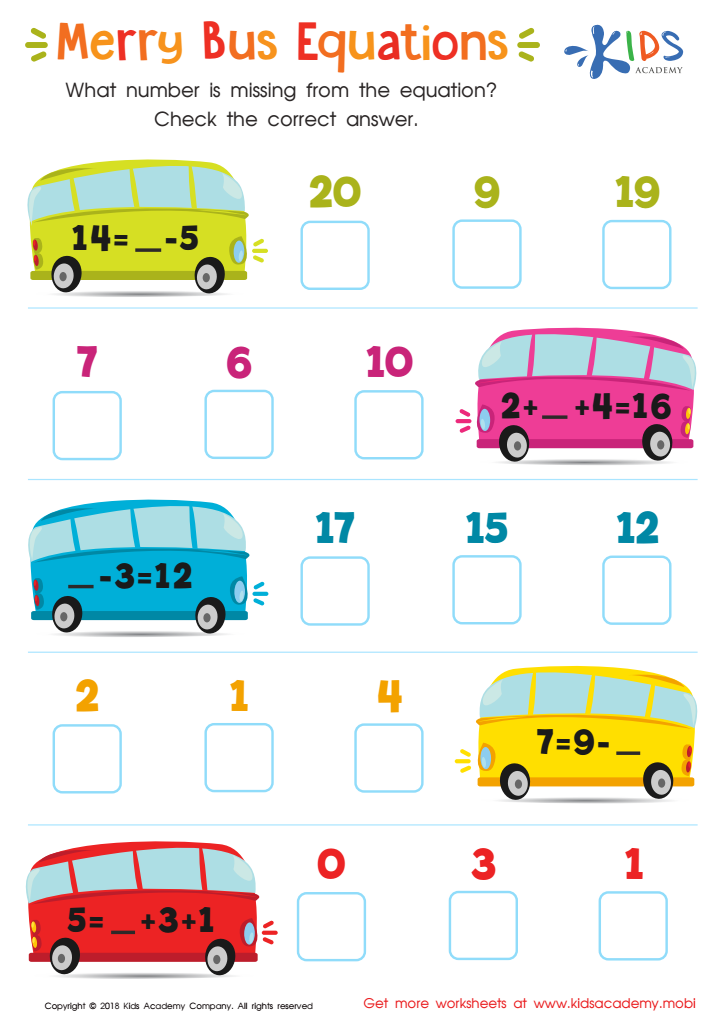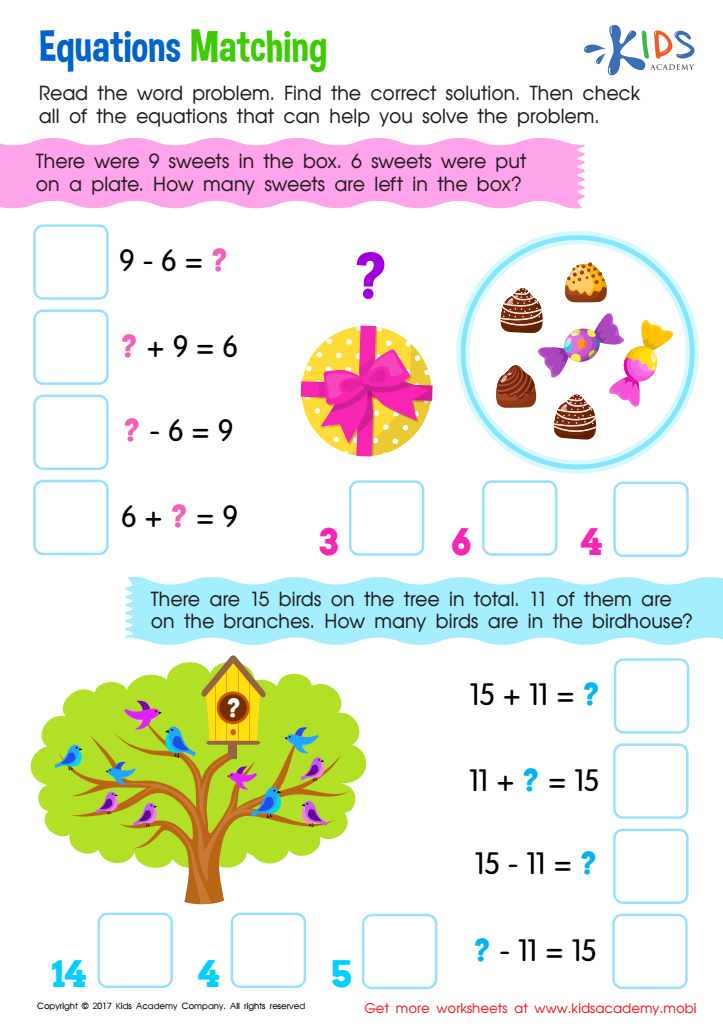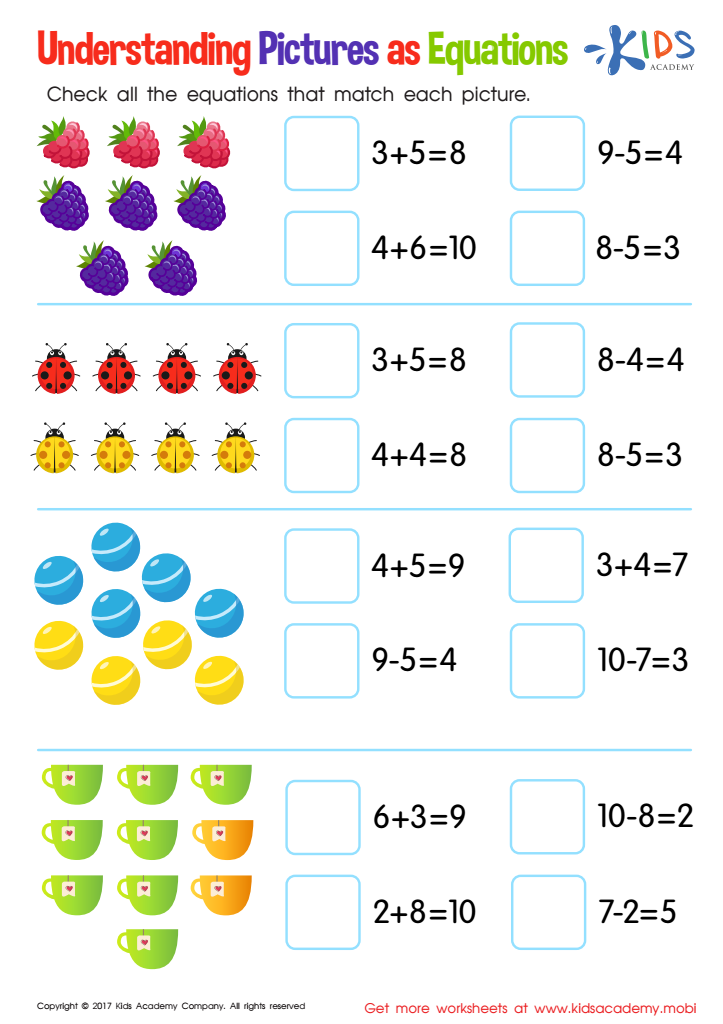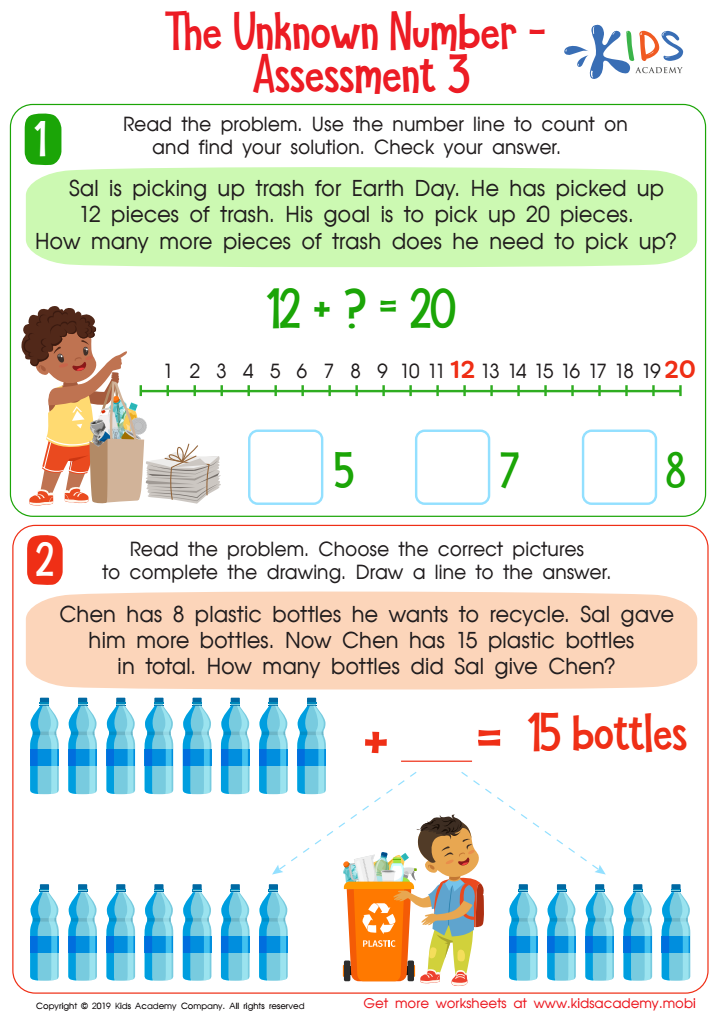Understanding equations Addition & Subtraction Worksheets for Ages 5-7
7 filtered results
-
From - To
Our "Understanding Equations: Addition & Subtraction Worksheets" are designed for children ages 5 to 7, making math both engaging and educational. These worksheets help young learners grasp fundamental concepts of addition and subtraction through colorful visuals and interactive exercises. Kids will explore simple equations, enhancing their problem-solving skills and number sense in a fun way. By encouraging critical thinking, these resources lay a strong foundation for future math success. Ideal for home or classroom use, our worksheets provide clear explanations and plenty of practice opportunities, ensuring your child gains confidence in understanding mathematical equations. Start their math journey today!


Merry Bus Equations Worksheet


Equations Matching Word Problems Worksheet


Understanding Pictures as Equations Worksheet


The Unknown Number - Assessment 3 Worksheet
Understanding equations, particularly addition and subtraction, is crucial for children aged 5-7, laying a foundation for their mathematical skills and overall cognitive development. At this age, children are like sponges, eager to absorb new concepts that can shape their future learning paths. When parents or teachers emphasize the significance of these basic equations, they help children develop critical thinking and problem-solving skills.
By grasping the principles of equations, children learn to recognize patterns and relationships between numbers. This foundational understanding promotes confidence as they tackle more complex arithmetic in later years. Additionally, fostering this early mathematical comprehension encourages a positive attitude towards math, reducing anxiety and promoting a growth mindset.
Moreover, strong addition and subtraction skills enhance children's ability to navigate everyday situations, from sharing equally to understanding simple financial concepts. They also support academic success across subjects by developing logical reasoning skills. Therefore, prioritizing a strong understanding of equations in early education is an essential investment. It equips children with the tools they need not only for math but for all aspects of learning and real-world application. Ultimately, this attention supports their overall academic engagement and lifelong love for learning.
 Assign to My Students
Assign to My Students
























